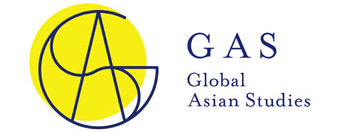Global Japan Studies and "Evaluation"
Professor Shigeto Sonoda (Institute for Advanced Studies on Asia, The University of Tokyo Interfaculty Initiative in Information Studies and Graduate School of Interdisciplinary Information Studies)
In 2002, the Ministry of Education, Culture, Sports, Science and Technology (MEXT) embarked on creating World-standard Research and Education Bases called “21st Century COE Program”, which included humanities and social sciences as well as natural sciences, by utilizing a competitive funding scheme. The goal of the MEXT was to "elevate Japanese universities to the world’s highest echelons, while fostering people of talent and creativity who will be qualified to assume roles as world leaders". Here, world ranking was not referred to as goals. When “21st Century Centers of Excellence” was succeeded by the program “Global Centers of Excellence” in 2007, Times Higher Education already started its project of ranking world universities. But even then, the goals defined by MEXT was “to elevate the international competitiveness of the Japanese universities” rather than pursuing high world ranking.
However, in the Top Global University Project inaugurated in 2014, the goals became to resolutely implement “university reform” and “internationalization,” and furthermore to provide support to "universities that have top world-level education and research programs and universities that can drive the internationalization of Japan’s higher education". The Top Global University Project includes two types of university: Type A and B. For the Type A universities which are “world-class universities that have the potential to be ranked in the top 100 in world university ranking,” specific target of ranking was designated.
The Global Japan Studies program cannot escape from this trend. Indeed, in its attempts to develop international collaborations via Japanese studies and open up new research fields, GJS has come under the heavy influence of the intellectual magnetic field of the University of Tokyo.
In an environment where competitiveness is emphasized, “evaluation” becomes an indispensable factor. External evaluation has been playing a large role not only for obtaining competitive grants but even for receiving management expenses grants.
Fortunately, external evaluation committee for the Institute for Advanced Studies on Asia has evaluated Global Japan Studies program very positively because GJS represents the transformation from traditional assumption of “Asia AND Japan” to the perspective of “Japan IN Asia” with its strong mission for international collaboration.
Evaluation of GJS in the university is also good. I have previously noted the positive evaluation GJS received from the JSPS when we applied for the Top Global University Project funding in 2014. In the University of Tokyo’s application for the Designated National Universities status this year, GJS is mentioned as well.
Good evaluation will not necessarily guarantee expansion of our budget size, but we can probably count on minimum resources necessary for maintaining the GJS program. With resources secured, we need to institutionalize our management system. The operation of GJS which has so far been enabled by our “volunteer works” will change from next year to the management by a formally established committee.
Will this institutionalization bring about good results for research development or not? What’s being evaluated is perhaps less the content of the GJS program than our very stance and commitment to GJS.



